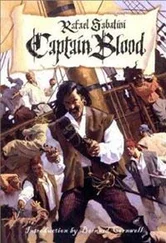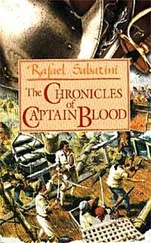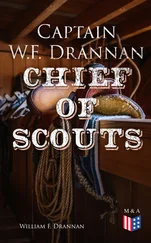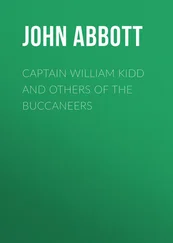William Shatner - Captain's Blood
Здесь есть возможность читать онлайн «William Shatner - Captain's Blood» весь текст электронной книги совершенно бесплатно (целиком полную версию без сокращений). В некоторых случаях можно слушать аудио, скачать через торрент в формате fb2 и присутствует краткое содержание. Год выпуска: 2003, ISBN: 2003, Издательство: Simon and Schuster, Жанр: Космическая фантастика, на английском языке. Описание произведения, (предисловие) а так же отзывы посетителей доступны на портале библиотеки ЛибКат.
- Название:Captain's Blood
- Автор:
- Издательство:Simon and Schuster
- Жанр:
- Год:2003
- ISBN:9780743480376 0743480376
- Рейтинг книги:4 / 5. Голосов: 1
-
Избранное:Добавить в избранное
- Отзывы:
-
Ваша оценка:
- 80
- 1
- 2
- 3
- 4
- 5
Captain's Blood: краткое содержание, описание и аннотация
Предлагаем к чтению аннотацию, описание, краткое содержание или предисловие (зависит от того, что написал сам автор книги «Captain's Blood»). Если вы не нашли необходимую информацию о книге — напишите в комментариях, мы постараемся отыскать её.
Captain's Blood — читать онлайн бесплатно полную книгу (весь текст) целиком
Ниже представлен текст книги, разбитый по страницам. Система сохранения места последней прочитанной страницы, позволяет с удобством читать онлайн бесплатно книгу «Captain's Blood», без необходимости каждый раз заново искать на чём Вы остановились. Поставьте закладку, и сможете в любой момент перейти на страницу, на которой закончили чтение.
Интервал:
Закладка:
No matter the cause, the terse Vulcan healer maintained that Spock’s unconsciousness had actually been a benefit. Enough people had seen him thrown back from the podium to rule out such tricks as transporter substitution. Before dozens of close-up witnesses, he had crumpled to the stage floor in a limp confusion of sprawling limbs, the chemical he had sipped from his water cup providing a convincing froth of what appeared to be green blood at his lips.
The Vulcan defenders onstage, different from the unwitting Romulan bodyguards who had escorted Spock to the coliseum, had successfully kept witnesses back while they frantically called for healers, so that when the carefully timed fire spread across the stage floor and the blast-fractured structure began to collapse, there was no question but that it was Spock who had been caught by the explosion, it was Spock who had been abandoned onstage, and it was Spock whose body was mangled beyond recognition by fire and crushing debris.
That part of the plan, at least, had unfolded satisfactorily.
Less satisfactory to Spock was the lack of explanation for the illogical aftermath of his plan. That was the conundrum that troubled him as he walked slowly along the high-ceilinged cavern tunnel for his daily meeting with T’Vrel. The tunnel’s walls were rough volcanic rock, carved by particle beams centuries ago, cold and dark now, lit only by occasional facets of emerald light. And though Spock knew that the nature of this rock explained the past and foretold the inevitable future of the twin worlds of Romulus and Remus, he did not yet see how his own fate was also contained within it, like a hidden vein of dilithium, waiting for its discovery to unleash a revolution that would change the face of the galaxy.
As a planetary system, Romulus and Remus shared similarities of their birth with Earth and its moon. Once, geologists believed, the twin planets were a single body, which, for convenience, they called Romii. Then, five-point-three billion years in the past, another planetary body, at least sixty percent the size of Romii, and in a retrograde orbit, collided with the giant protoworld.
In a matter of hours, the stupendous impact had stripped the crust from Romii, and in less than two hundred years, it was estimated, that ejecta had coalesced into a single body that would eventually cool to become the planet now known as Romulus, still spinning quickly with the force of that ancient, cataclysmic collision, eventually becoming an abode of life.
The other half of Romii, composed primarily of its heavy core elements, had been superheated by the impact and the concurrent energy release of its axial revolution being stopped dead. After two million years of erratic oscillations before stable orbital resonance was achieved, the result was the planet Remus—perhaps the richest world in the Alpha and Beta Quadrants in terms of exotic mineral wealth, yet rendered virtually uninhabitable because it was gravitationally locked to its sun so that one day equaled one year, keeping the same face in constant sunlight, and the opposite side in perpetual night.
The planet’s unusually heavy gravity for its size, one-point-five standard G for a world barely the size of Mars, plus its complex chemistry produced an atmosphere of sorts. And billions of years later, when the Vulcan diaspora limped into the Romii system in their ragtag fleet of sublight ships, they found two life-bearing worlds: Romulus, with its complex ecosystem and oxygen atmosphere, a reasonable length of night and day, and virtually no mineral wealth with which to build a civilization; and Remus, in-hospitable, devoid of life except in the unique zone of habitability existing in the perpetual twilight of its unmoving terminator, but with the mineral treasures to build not just a world’s civilization, but an empire’s.
Thus it was in the petri dish of the Romii system that the maverick offshoot of the Vulcan race split again, becoming the ruling elite of Romulus, and the subjugated slaves of Remus. Yet both branches of the original colonists maintained that savage edge that was their heritage from their pre-logic Vulcan ancestors. In the Romulans, that savagery became the fount of cold and cruel calculation, making them masters of intrigue and manipulation. In the Remans, it became the fount of physical strength and a penchant for direct action.
But those colonists who first chose the rewards they believed awaited them in the mines of Remus, and who were later joined by native generations of Romulans exiled for their crimes, then their sins, and, eventually, for their political beliefs, had to devote the majority of their existence to mere survival. The Romulans, in the comparative paradise of the world they had chosen, had time to look beyond themselves and build their empire. The military might that forged that assemblage of worlds became an equally effective tool for ensuring that the Remans fulfilled their half of the social contract—supplying the material wealth that enabled the Romulan expansion, while being given none of it for their own use and betterment.
Two thousand years after the first landing on Romulus, no one could say exactly when it was the Remans had become a slave race, and no Romulan historian would dare to investigate. It was simply the way things had always been and always would be.
The Remans, however, in their stories and traditions, in their secret schools in which the Old Ways were passed down through the generations by spoken word alone, still remembered a time when things were different, and thus could imagine a future time when things would be different again.
A ruling race that believed in the permanence of their society.
A slave race that knew that all things must change.
In the histories of a thousand different worlds, that same situation had led to only one result—
Revolution.
And all because two worlds had collided five billion years ago.
Those shock waves still resonated through history.
But Spock had yet to feel them.
T’Vrel was waiting for Spock in the starkly lit and austerely furnished canteen, as she always did this time of day.
The courtesy was something else Spock had noticed with his advancing years and rank. He no longer had to wait for anyone. Somehow, he became the more important participant in any meeting, and so he invariably became the last to arrive, even when he arrived early.
“Ambassador,” the healer said, politely acknowledging his presence. They were the only two occupants in a canteen built to seat one hundred Romulan troops, and as usual, T’Vrel spoke in one of Vulcan’s more esoteric scholar’s dialects.
In keeping with T’Vrel’s preference for efficient conversation, Spock acknowledged her presence in turn with a simple nod. Considering her background, he knew it was the correct response.
T’Vrel was a Surakian. Of all the different offshoots of Vulcan empiricism, among which no truly major differences existed, the Surakians were those who attained the Kolinahr through the ongoing pursuit of the strictest interpretation of Surak’s teachings. As was typical of her particular school of logic, T’Vrel’s head was shaved, the clearest expression of the Surakian disdain for ornamentation of any kind. Her clothing consisted of a plain dark brown robe, with a simple, floor-length lighter brown vest of Guylinian cotton, from the province of Surak’s birth.
Also, as would the others of her school, T’Vrel had renounced personal possessions, and in the normal course of events, she would have been expected to live a fully communal existence, dedicated to the advancement of knowledge above all else.
Many of Vulcan’s greatest scientists and philosophers had been Surakian, or had been shaped by their schools. But, intriguingly, for all that they sought out new information and experience, not one Surakian had ever followed Spock’s path and sought a career in Starfleet. Their focus was strictly on Vulcan. Everything else was extraneous.
Читать дальшеИнтервал:
Закладка:
Похожие книги на «Captain's Blood»
Представляем Вашему вниманию похожие книги на «Captain's Blood» списком для выбора. Мы отобрали схожую по названию и смыслу литературу в надежде предоставить читателям больше вариантов отыскать новые, интересные, ещё непрочитанные произведения.
Обсуждение, отзывы о книге «Captain's Blood» и просто собственные мнения читателей. Оставьте ваши комментарии, напишите, что Вы думаете о произведении, его смысле или главных героях. Укажите что конкретно понравилось, а что нет, и почему Вы так считаете.












